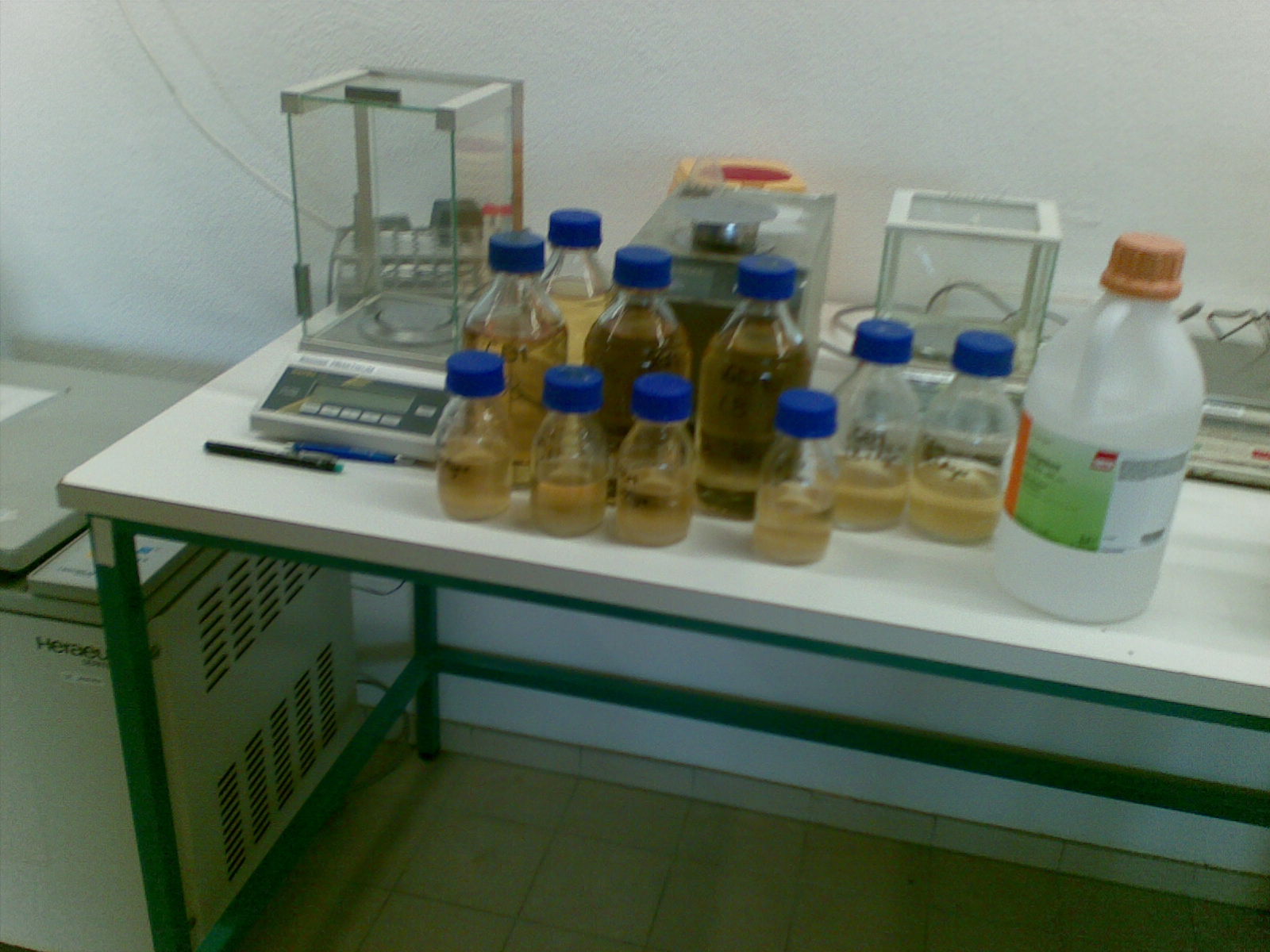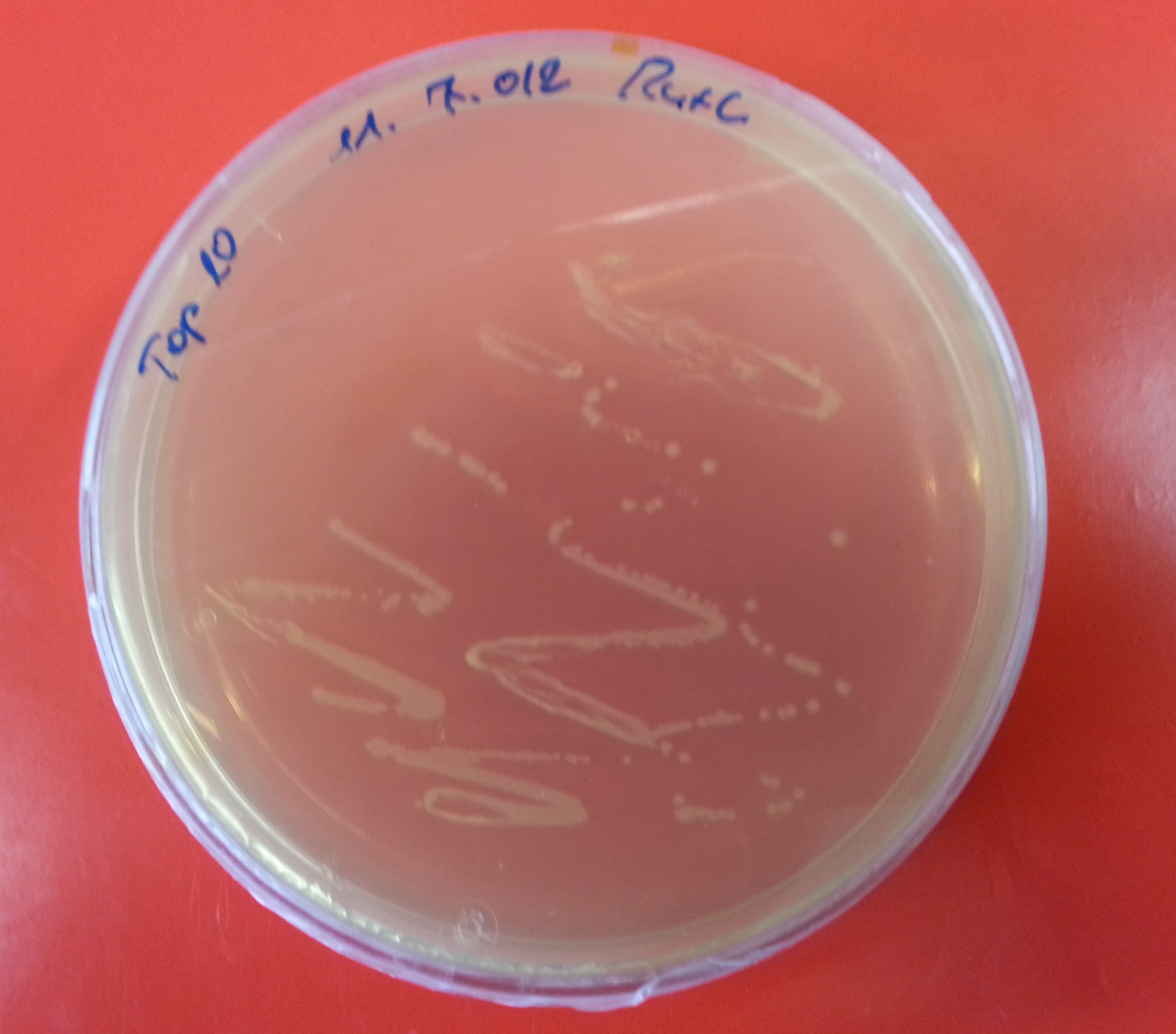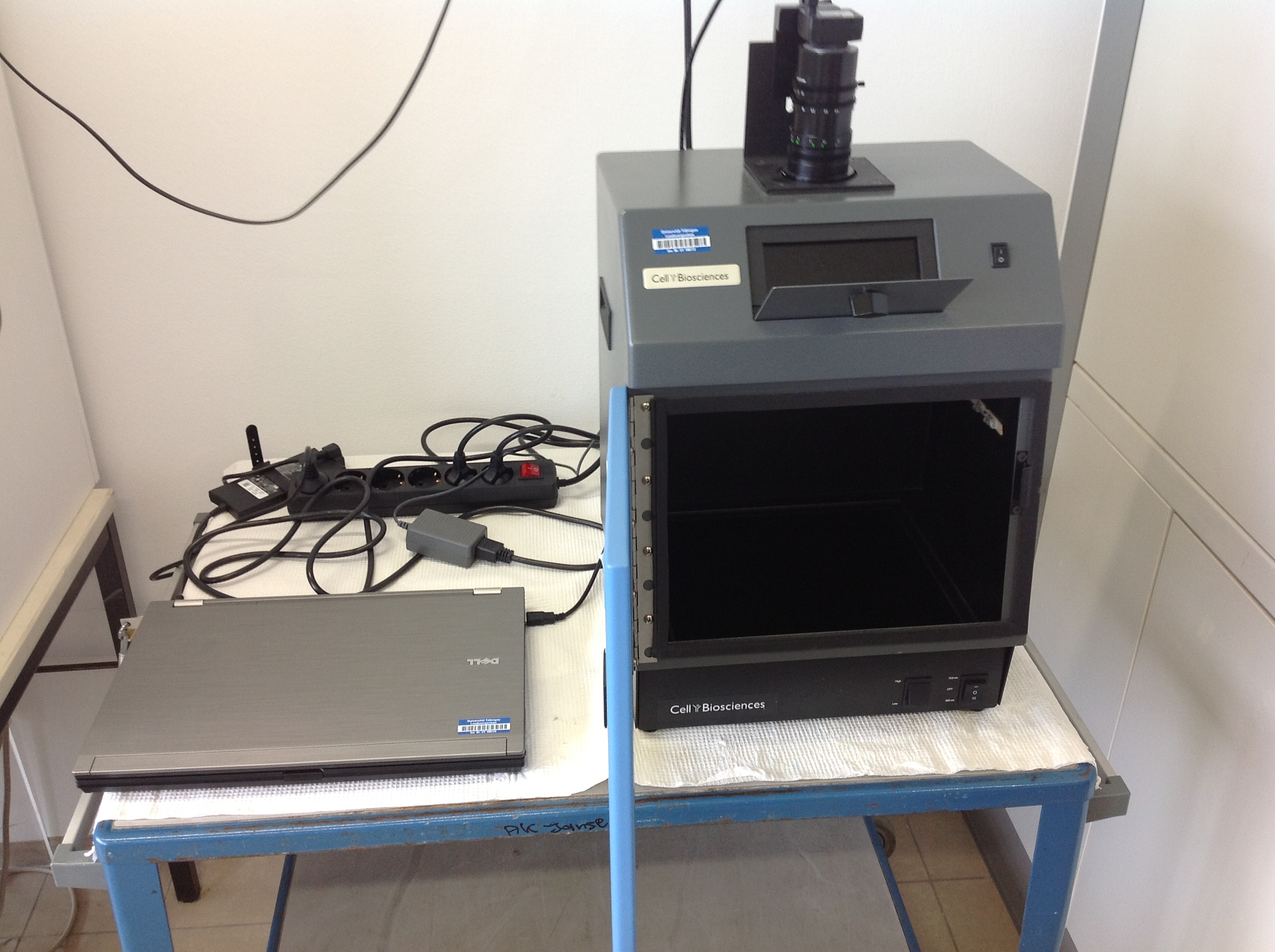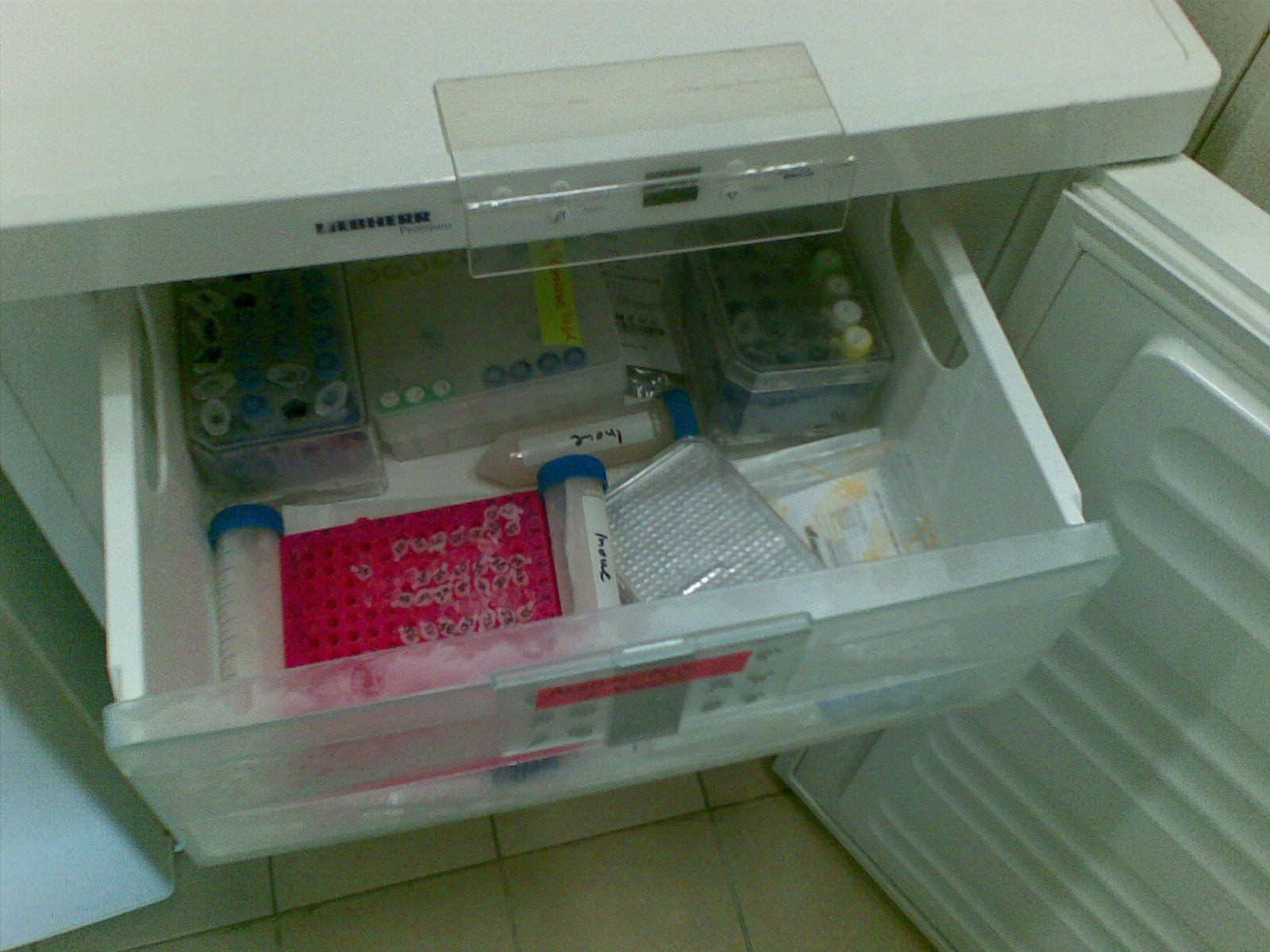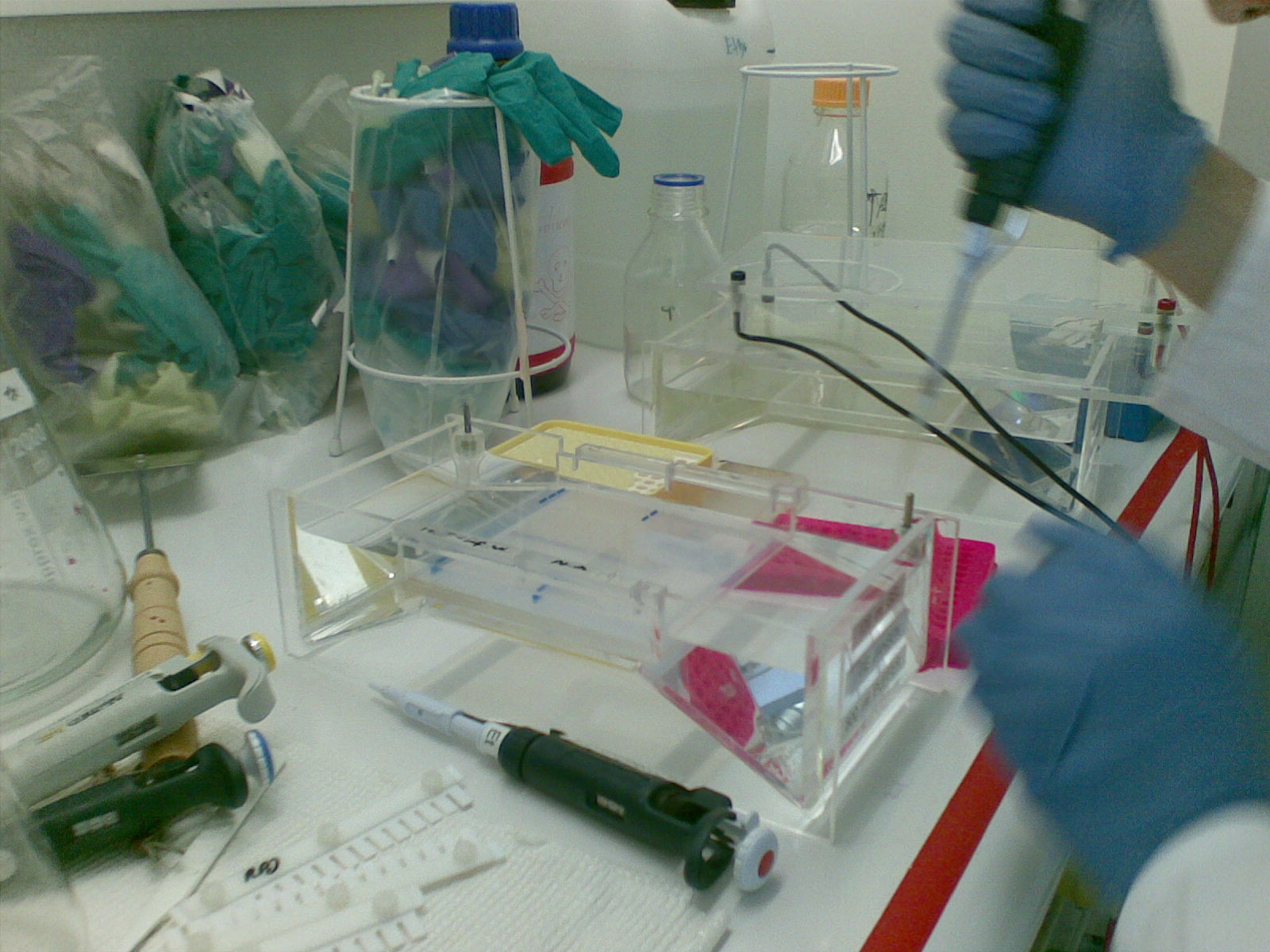Team:Tuebingen/NotebookReports
From 2012.igem.org
Jakobmatthes (Talk | contribs) |
Jakobmatthes (Talk | contribs) (→Week 1 (7/9 - 7/15)) |
||
| Line 37: | Line 37: | ||
=== Week 1 (7/9 - 7/15) === | === Week 1 (7/9 - 7/15) === | ||
| - | |||
[[File:Tue-medium.jpg|thumb|right|LB, SOB, TAE]] | [[File:Tue-medium.jpg|thumb|right|LB, SOB, TAE]] | ||
| + | [[File:Chemo-competent-cells.jpg|thumb|right|TOP10 cells on plate]] | ||
Thursday the 12th of July was the first day in our laboratory. | Thursday the 12th of July was the first day in our laboratory. | ||
Revision as of 09:34, 19 September 2012
Weekly Reports
Parts, Plasmids and Constructs
To understand all referenced parts and their enumeration, here is a full listing:
| Part no. | Part name |
|---|---|
| 1 | lacZ |
| 2 | luciferase |
| 3 | Padh1 |
| 4 | Psuc2 |
| 5 | Padh1 |
| 6 | Panb1 |
| 7 | Tadh1 |
| 8 | rox1 |
| 9 | mPR Danio rerio |
| 10 | mig1 |
| 11 | mPR Xenopus laevis |
For the full information of these parts in the Parts Registry, refer to Submitted Parts.
Week 1 (7/9 - 7/15)
Thursday the 12th of July was the first day in our laboratory.
1. At first different substances, for example LB, SOB and TAE buffer 50x, which would be necessary for the further practice, were prepared.
2. To determine the optimal annealing temperature, a gradient PCR for the parts 1-8 was performed. Doing a gel-electrophoresis the PCR results were tested.
3. Preparing chemocompetent E. coli TOP 10 cells after Inoue protocol.
Week 2 (7/16 - 7/22)
1. A successful PCR for the Parts 1-7 with the optimal annealing temperature was performed. It was controlled by a gel-electrophoresis.
The Parts 3-7 were cleaned with a PCR-DNA-Purification-Kit. After that the concentration of the purified parts was measured with NanoDrop.
2. To test the competence of the chemocompetent E. coli TOP 10 cells a transformation with pRS313 and a negative control was done. Due to the fact that the competent cells didn’t work, new chemocompetent E. coli TOP 10 cells were prepared. The Transformation of pRS313, pRS315 and pRS316 in these competent cells was successful.
Week 3 (7/23 - 7/29)
1. The first ligation of the parts 1-8 in pGEM with following transformation in the competent E. coli TOP10 was done. But unfortunately only a few colonies grew on the inoculated agar-plates, which were incubated over night at 37°C. The restriction digest was performed on the extracted plasmids of the grown colonies to control the ligation of the insert. The following gelelectrophoresis showed that the ligation was not successful, because only one band of 3000bp for the pGEM vector was visible.
2. A new PCR of the parts 1 and 8 was executed. Using a PCR-DNA-Purification-Kit the PCR-product 8 was purified. The PCR-product 1 was purified with a preparative gel. The concentration of the final products was measured with NanoDrop.
Week 4 (7/30 - 8/05)
1. The shipment with the synthesized parts (mPRq of Danio rerio and MIG1) arrived.
2. A transformation of the parts mPRq and MIG1 was performed using the competent E. coli TOP10 cells. Another transformation of the backbone plasmids pRS313, pRS315 and pRS316 was executed. Both were successful. The first attempt to isolate the plasmids was with usage of a plasmid preparation kit. But this try failed. Therefore the plasmid isolation was successfully repeated using the alkaline lysis.
3. A new PCR of the parts 1-8 with Taq/Pfu-polymerase was performed applicating new yeast DNA. As an effect of the frequent freezing and defrosting the old yeast DNA was probably destroyed. Therefore some earlier PCRs did not work.
Week 5 (8/06 - 8/12)
1. A small restriction digest of the shuttle vectors pRS313, pRS315 and pRS316 was performed with XbaI and SpeI in order to examine the right overhangs for a ligation to take place later. The restriction digest was executed with the parts Mig1 and mPR of Danio rerio, too. Due to unclean plasmids and DNA (perhaps to much salts in the tubes) this step had to be repeated several times, because the restriction digest beeing incomplete.
Therefore the plasmids (pRS313, 315, 316 and the parts Mig1, mPR D.R.) were purified again with a midi DNA purification kit. Now the restriction digest was executed completely. A mini plasmid preparation was performed afterwards to purify DNA in order to prepare the DNA for ligation.
2. A new PCR of the parts 1-8 was executed using Herculase in order to obtain a higher amount of PCR-product. The polymerase Herculase was used due to its preciseness and productivity. Indeed the result of the PCR was better than with Pfu/Taq-polymerase.
A Preparative gel for PCR products 3,4,5,6,7,8 (from PCR with Herculase) delivered new template for another PCR with Taq/Pfu Polymerase.
Week 6 (8/13 - 8/19)
1. The first successful ligation and transformation into pGEM vector of part 4 in E. coli TOP10 was executed. A lot of colonies grew on the agar-plate. After a restriction digest with XbaI and SpeI and the control with a gel-electrophoresis the right band of 711bp was visible. The sequencing of the DNA confirmed that part 4 has the expected DNA-sequence. A midi-prep, restriction digest and preparative gel-electrophoresis followed in order to prepare them for later ligation in pRS vectors.
Ligation of part 3, 6, 7 and 8 in pGEM vector was performed. Reaction took place over night at 4 °C (39.2 Fahrenheit). The transformation of these parts was executed into E. coli TOP10. After growth over night, a mini plasmid preparation was performed. After a colony-PCR with parts 3,6,7,8 did not work, we had to get back to the restriction digest. Positive samples were prepared for sequencing. The Parts 3 and 8 were sequenced successfully. The ligation of parts 6 and 7 failed, so we decided to skip part 6, because we may use Psuc2 as promotor for luciferase.
2. We received the synthesized receptor of Xenopus laevis. It was successfully transformed in E. coli TOP10 and purified with midi-prep.
Week 7 (8/20 - 8/26)
1. The PCR of the parts 1 and 2 with Herculase polymerase was executed. The PCR products were checked with an analytical gel afterwards. The PCR of part 1 failed again, so we decided to reject part 1 and continue working only with luciferase (part 2), because we only need one reporter gene.
2. Since we ran out of luciferase DNA, we decided to transform remaining DNA of luciferase into E. coli TOP10. The transformation was successful.
3. The receptors (mPR Danio rerio, mPR Xenopus laevis) and mig1 were initially ligated into pRS vectors and transformed into E. coli TOP10. But no colonies grew on the agar-plate.
Week 8 (8/27 - 9/02)
1. Part 5 was ligated into pGEM vector and transformed into E. coli afterwards. After performing a restriction digest it was obvious that the insert did not have the correct length and therefore cannot be the correct insert.
2. Second ligation of mPR Danio rerio, mPR Xenopus laevis and mig1 into pRS vectors and transformation into E. coli TOP10 was executed. Some colonies grew on the agar-plates. Therefore a mini-prep and a restriction digest with XbaI and SpeI with a following gel-electrophoresis was conducted. But there was only ligation of the insert in pGEM, not into pRS.
3. Ligation of the parts 3 and 4 in pRS vectors with following transformation into E. coli TOP10 was performed. But it was not successful.
 "
"
